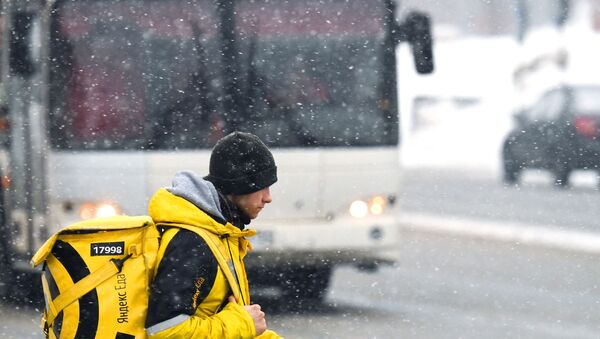The ongoing coronavirus pandemic, which forced many in Russia to stick to a self-isolation regime, may open up new opportunities for developing a variety of online services, according to Yelena Trubnikova, head of the international audit and consulting network FinExpertiza.
She predicted that “most of the business and the economy as a whole will certainly lose due to coronavirus and its fallout, related to a decline in demand for goods and services”.
Some companies, however, “will keep afloat and will even manage to improve their performance”, she said, referring to online food and non-food delivery services, as well as various entertainment and educational internet platforms that offer films, games, entertainment, online courses, and “other useful and interesting content”.
Trubnikova suggested that grocery chains can only capitalise on short-term demand for essential commodities, and that this effect will be compensated by a subsequent decrease in buying activity as soon as panic mode declines.
“At the same time, online stores can expand the market niche for food retail growth”, she underscored.
The past few weeks have seen Russian customers’ increasing demand for a number of essential goods, including pasta and cereals.
Deputy Industry and Trade Minister Viktor Yevtukhov, for his part, assured that retailers had formed stocks of socially significant goods for a period of about eight weeks, and that a shortage of products is not expected.
'Loyal Subscribers' of Online Services
Trubnikova, meanwhile, was echoed by Roman Romashevsky, financial director at the financial technology company VR_Bank, who argued that the growing demand for remote and online services “makes these services cheaper”, also leading to the emergence of more such services.
“For example, Yandex.Lavka temporarily cancelled free delivery, while many online movie theatres offer promotional codes to new subscribers and the [Russian] Central Bank plans to zero out tariffs on transfers in fast payment systems between individuals”, Romashevsky said.
According to his forecast, after the end of the self-isolation period, most of the new customers, who used the online services for the first time, will most likely remain "loyal subscribers".
“The growth of the customer base, in turn, will attract new investments, including those that will be pumped into the infrastructure of communication channels”, he said adding that a surging demand for the network requires an increase in capacity, including on the basis of 5G technology.
MTS Bank experts have, in the meantime, suggested that the demand for taxi and car-sharing services will also grow in the near future due to the strengthening of measures to prevent the spread of the coronavirus.
“In order to prevent the disease, some citizens will prefer to use these vehicles instead of public transport”, they asserted.
In light of this, the Gett taxi online booking service has already registered a 20-percent increase in demand for taxi services in comfort and premium classes, according to Gett director Anatoly Smorgonsky.
COVID-19 Consequences in Russia and Beyond
Over 36,500 people remain under medical observation in Russia due to suspected coronavirus infection, the country's health and consumer rights watchdog Rospotrebnadzor said on Saturday.
As of Friday, Russia has registered 253 cases of the new coronavirus, 12 of the patients have recovered, with no fatalities caused by COVID-19 so far.
On the 11th of March, the World Health Organisation (WHO) announced that the COVID-19 outbreak can characterised as a pandemic, calling on the global community to intensify an emergency response to the problem.
According to the WHO’s latest information, there are over 210,000 coronavirus cases across the world, with the death toll standing at more than 9,000. The COVID-19 pandemic has led to the cancellation of many major international events, flight restrictions, and closure of borders, as well as quarantine regimes currently in place in a number of cities.





